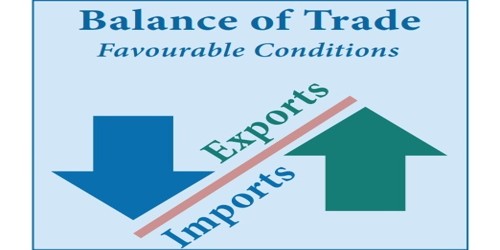
Are you tired of living paycheck-to-paycheck? Do you want to take control of your finances and achieve financial independence? By implementing effective finance management and financial planning strategies, you can break free from the cycle of living paycheck-to-paycheck and pave the way for a more secure financial future.
This article explores key steps that individuals can take to improve their personal finance, including budgeting, saving and investing, debt management, retirement planning, building wealth, establishing emergency funds, establishing short and long-term goals, and seeking professional financial advice.
Key Takeaways:
- Personal finance is all about managing your money efficiently, ensuring financial stability and independence.
- Effective finance management and financial planning strategies are essential to break free from the paycheck-to-paycheck cycle.
- Key steps to improve personal finance include budgeting, saving and investing, debt management, retirement planning, building wealth, establishing emergency funds, establishing short and long-term goals, and seeking professional financial advice.
- Improving your financial literacy can help you make informed financial decisions.
- Always seek professional financial advice when dealing with complex financial matters.
Understanding the Importance of Budgeting
Effective budgeting is an essential tool for managing personal finances. It allows you to track expenses, control spending, and save for future goals. By creating a budget and sticking to it, you can gain a better understanding of your financial situation and make informed decisions about your money.
The Benefits of Budgeting
There are several benefits to budgeting:
- Helps you control spending
- Allows you to track expenses
- Highlights areas where you can cut costs
- Helps you save for future goals
- Reduces financial stress
By being aware of where your money is going, you can make necessary adjustments to your spending habits and prioritize your financial goals.
How to Create a Budget
Creating a budget is easy and can be done in a few steps:
- Calculate your income
- List your monthly expenses
- Categorize your expenses
- Set spending limits for each category
- Track your spending and adjust your budget as needed
One useful tool for budgeting is a budget spreadsheet, which can help you keep track of your income and expenses and monitor your progress towards your financial goals.
Tips for Sticking to Your Budget
Sticking to a budget can be challenging, but there are several things you can do to make it easier:
- Review your budget regularly and make adjustments as needed
- Track your spending to ensure you are staying within your limits
- Avoid impulse purchases by planning ahead
- Use cash or a debit card instead of credit cards to avoid overspending
- Find free or low-cost alternatives for entertainment and other expenses
In Conclusion
Overall, budgeting is a powerful tool for managing personal finances. By creating a budget, you can gain control over your spending, prioritize your financial goals, and build a secure financial future.
Saving and Investing for the Future

Managing personal finance effectively requires careful planning and effective management of financial resources. Saving and investing are crucial factors that can help you achieve financial stability and security in the long run.
There are various methods of saving money, including setting aside a portion of your income each month, reducing unnecessary expenses, and establishing an emergency fund. In addition to saving, investing your money can help you grow your wealth over time. Investment options include stocks, bonds, mutual funds, and real estate, among other choices.
Investment Options
Each investment option has its own unique features and benefits. When considering investment options, it's important to understand the risks involved and make informed decisions. Here are a few examples of investment options:
| Investment type | Description |
|---|---|
| Stocks | Buying a share of a company's stock represents ownership in that business, with the potential for profit through capital appreciation as the stock value increases or dividends that the company distributes to shareholders. |
| Mutual Funds | A mutual fund is an investment that pools money from multiple investors to buy a diversified portfolio of stocks, bonds, and other securities. This allows individual investors to achieve diversification without the need for large amounts of capital. |
| Bonds | Bonds are debt securities, representing a loan made by an investor to an issuer, typically a corporation or government. The issuer pays interest at a fixed rate for the duration of the bond term, and upon maturity, the investor receives the principal amount back. |
| Real Estate | Real estate investments involve the purchase, management, and sale of different types of properties. Real estate investment trusts (REITs) are a popular way to invest in real estate without owning property outright. |
It's important to remember that investing involves risks, and the performance of investments can fluctuate over time. It's essential to diversify your investment portfolio to mitigate risks and maximize returns.
Developing a Saving and Investment Plan
To create a solid saving and investment plan, you need to identify your financial goals and assess your current financial situation. Once you have a clear idea of where you stand, you can determine how much money you need to save and invest to achieve your goals. You can then create a detailed plan that outlines how much you'll set aside each month and which investment options you'll pursue.
It's important to review and adjust your saving and investment plan regularly to ensure it aligns with your changing financial circumstances and goals.
By implementing effective saving and investment strategies, you can build wealth over time and attain financial freedom. Remember to conduct thorough research, diversify your investments, and seek professional advice if you need it.
Managing Debt Wisely
Effective debt management is crucial for maintaining financial stability and achieving personal finance goals. When managing debt, it's important to create a plan that fits your financial situation and goals.
Here are some debt management strategies to consider:
- Create a Budget: Start by creating a budget to help you track your expenses and identify areas where you can cut back on spending. Use the extra money to pay down your debt.
- Pay More Than the Minimum: Paying more than the minimum helps you pay off your debt faster and can save you money in interest charges.
- Consider Consolidation: Debt consolidation can simplify your debt payments by combining multiple debts into one monthly payment. This can also help you save money on interest charges.
Another important aspect of debt management is to improve your credit score:
- Check Your Credit Report: Check your credit report for errors and dispute any inaccuracies.
- Pay Bills on Time: Late payments can negatively impact your credit score.
- Keep Your Credit Utilization Low: Try to keep your credit utilization below 30% to improve your credit score.
Remember, managing debt is a process that requires commitment and discipline. By implementing these strategies, you can take control of your debt and achieve financial freedom.
"The borrower is a slave to the lender." - Proverbs 22:7
Planning for Retirement

Planning for retirement is a critical component of personal finance. Many individuals fail to adequately plan for retirement, leaving themselves vulnerable to financial difficulties later on in life.
There are several retirement savings options available, including 401(k)s and IRAs. These retirement plans offer tax benefits and can help you save for your retirement years.
Understanding 401(k)s
A 401(k) is a retirement savings plan sponsored by an employer. As an employee, you can contribute a portion of your salary to your 401(k) account. This contribution is deducted from your paycheck before taxes are applied, reducing your taxable income for the year.
In addition to tax benefits, many employers offer matching contributions to their employees' 401(k) accounts. This matching contribution can be a significant boost to your retirement savings, so be sure to take advantage of this opportunity if it is available to you.
Exploring IRAs
An IRA, or individual retirement account, is another retirement savings option. Unlike a 401(k), which is employer-sponsored, an IRA is opened and managed by an individual.
IRAs come in different forms, including traditional, Roth, and SEP. Each IRA has different benefits and eligibility requirements, so it is essential to research and understand each type before deciding which one is right for you.
Setting Achievable Retirement Goals
When planning for retirement, it is crucial to set achievable goals. Determine how much money you will need to save, taking into account your desired retirement age, lifestyle, and other factors.
It is also essential to continually monitor your retirement savings and adjust your goals as necessary. You may need to increase your contributions or adjust your investments to ensure you reach your retirement goals.
Starting early and consistently saving for retirement can help you achieve financial security in your golden years. With careful planning and preparation, you can enjoy a comfortable retirement and peace of mind.
Building Wealth and Creating Financial Security
Building wealth is not about getting rich quickly, but smart investing, saving money, and making sound financial decisions. Accumulating wealth takes time, effort, and careful planning. Here are strategies to build wealth and create financial security:
- Invest wisely: One of the most effective ways to build wealth is through investments. Consider stocks, bonds, mutual funds, and real estate, but always do your research and understand the risks involved.
- Start a business: Entrepreneurship can be a great way to create financial security. Consider starting a side business or working on a passion project that has potential for growth.
- Live within your means: Spend less than you earn, and save the difference. Avoid impulse purchases and focus on purchasing assets that appreciate in value over time.
- Pay off debt: Reducing your debt can free up cash flow and enable you to make investments that grow your wealth.
Creating financial security is not just about building wealth, but also protecting what you have. Consider these strategies:
- Ensure adequate insurance coverage: Protect your assets by having the right insurance coverage, including health, life, and property insurance.
- Establish an emergency fund: Unexpected expenses can impact your financial security. Establish an emergency fund that covers at least six months of living expenses.
- Create a will: Estate planning is critical to protecting your assets and ensuring they go to the people or causes you care about. Consult with a professional to create a will and a comprehensive estate plan.
Building wealth and creating financial security is an ongoing process that requires discipline, patience, and a focus on long-term goals. By investing wisely, living within your means, and protecting your assets, you can achieve financial freedom and enjoy peace of mind.
Enhancing Financial Literacy

Improving your financial literacy is essential in making informed financial decisions that can help you achieve your personal finance goals. Financial literacy includes having the knowledge and skills to manage your finances effectively, understand financial products and services, and make informed decisions about financial planning, investing, and debt management.
There are many resources available to help you enhance your financial literacy, including online courses, workshops, personal finance books, and podcasts. These resources can help you learn about the fundamentals of personal finance, such as budgeting, saving, investing, and debt management, as well as more advanced topics, such as retirement planning and wealth creation strategies.
“Financial literacy is not an end, but a beginning. It is the first step towards financial freedom and achieving your goals.” – Robert Kiyosaki
Some of the educational programs that can help you enhance your financial literacy include:
- Free online courses offered by universities and educational institutions, such as Coursera, edX, and Khan Academy
- Personal finance books by authors like Dave Ramsey, Suze Orman, and Robert Kiyosaki
- Financial podcasts, such as The Dave Ramsey Show, Farnam Street, and Afford Anything
- Workshops and seminars offered by financial institutions, community centers, and libraries
Improving your financial literacy can help you make informed financial decisions that can positively impact your personal finance and overall financial well-being. By expanding your financial knowledge and skills, you can gain confidence in managing your finances and improve your financial management habits.
Establishing Emergency Funds
Unexpected events such as medical emergencies, car repairs, or job loss can derail your financial stability. Having an emergency fund ensures that you have a safety net to cover these unforeseen expenses and avoid taking on additional debt. Emergency funds are a critical part of personal finance management that can help you weather financial storms.
Experts recommend having at least three to six months’ worth of living expenses in your emergency fund. This figure may seem daunting, but starting with a smaller amount and gradually building up your fund can be a good first step. It's also essential to keep your emergency funds separate from your regular savings account, so you're not tempted to use the money for non-emergency expenses.
When choosing a savings account for your emergency fund, look for an account that is easily accessible, offers a high-interest rate, and has no fees. You want to be able to withdraw funds quickly and without penalty if an emergency arises. Online savings accounts can offer competitive interest rates and are a convenient option for emergency funds.
The Benefits of Emergency Funds
Establishing an emergency fund offers several benefits, including:
- Providing a safety net during unforeseen life events
- Reducing stress and anxiety related to financial emergencies
- Avoiding debt and high-interest loans
- Creating a financial cushion to help you make better financial decisions
Having an emergency fund is a crucial part of personal finance management. It helps you prepare for the unexpected and offers peace of mind that you can handle unexpected expenses without relying on high-interest loans or credit cards. Start building your emergency fund today and prioritize your financial stability.
Mapping Out Short and Long-Term Goals
Setting financial goals is an essential part of personal finance success. Without setting goals, it can be challenging to track progress and make necessary adjustments to your financial plan. Setting clear short and long-term financial goals is the first step to take control of your finances, avoid debts, and achieve financial independence.
Short-Term Goals
Short-term goals are those that you want to achieve within the next one to two years. Examples of short-term goals may include:
- Paying off credit card debt
- Building an emergency fund
- Going on a vacation
- Purchasing a new car
By setting achievable short-term goals, you can build momentum and increase your motivation to achieve financial stability. To achieve your short-term goals, consider breaking them down into specific, measurable, attainable, relevant, and time-bound (SMART) objectives. Be realistic with your goals and avoid taking on too much at once.
Long-Term Goals
Long-term goals are those that you want to achieve in the future, usually five years or more. Examples of long-term goals may include:
- Buying a house
- Starting a business
- Saving for retirement
- Investing in real estate
To achieve your long-term goals, it's essential to have a clear financial plan that outlines the steps you'll take to reach them. Consider working with a financial advisor to develop a comprehensive financial plan that aligns with your goals.
Goal Setting Strategies
When setting financial goals, it's essential to have strategies that will help you achieve them. Some effective goal setting strategies may include:
- Creating a budget
- Tracking your spending
- Automating savings contributions
- Investing in retirement accounts
- Using debt consolidation loans to pay off high-interest debts
By implementing strategies that align with your financial goals, you can achieve financial stability and create a secure financial future.
Seeking Professional Financial Advice
Sometimes, managing personal finance can be overwhelming, and seeking professional guidance can be beneficial in creating a secure financial plan.
Financial experts can provide personalized advice for finance management and financial planning, helping you optimize your strategies and achieve your goals. They have the expertise to navigate complex financial matters and can provide insights into specialized investment opportunities that align with your financial objectives.
Financial advisors can also assist in debt management, retirement planning, and developing short and long-term financial goals. They can help you create a personalized budget and provide guidance on how to invest and save based on your specific financial situation.
What to Consider when Seeking Professional Financial Advice
When selecting a financial advisor, consider their qualifications, experience, and credentials. It's essential to confirm that they hold the necessary licenses and certifications and have a positive reputation within the industry.
Additionally, choose someone you feel comfortable working with and who is transparent about their fees and services. A trustworthy financial advisor will put your interests first and work with you to create a tailored financial plan that aligns with your needs and goals.
In summary, seeking professional financial advice can be a smart investment in your financial future. A qualified financial advisor can provide personalized guidance and support, helping you create a sound financial plan that aligns with your needs and goals.
Conclusion
In conclusion, managing personal finance is essential for achieving financial stability and independence. By implementing effective finance management strategies, you can break free from the paycheck-to-paycheck cycle and achieve your financial goals- both short-term and long-term.
Key Takeaways
Here are a few key takeaways:
- Budgeting is essential for controlling spending and saving for future goals.
- Saving and investing are crucial for building wealth and securing your financial future.
- Effective debt management can help improve credit scores and reduce debt burden.
- Retirement planning is necessary for maintaining financial security in old age.
- Improving your financial literacy can help you make informed financial decisions.
- Establishing emergency funds can help you navigate unforeseen financial emergencies.
- Defining clear financial goals and seeking professional guidance can help you optimize your personal finance strategies.
By following these steps and incorporating them into your daily financial routine, you can achieve financial stability and independence.
Remember, managing personal finance requires discipline, determination, and patience. But, with a little effort and diligence, you can take control of your finances and pave the way for a more secure financial future.
Thank you for reading! We hope you found this article helpful in improving your personal finance and finance management skills.
FAQ
What is personal finance?
Personal finance refers to the management of an individual's financial resources, including budgeting, saving, investing, and planning for future financial goals.
Why is budgeting important?
Budgeting is crucial because it helps you track your expenses, control your spending, and ensure that you are saving money for future needs and goals.
How can I save and invest for the future?
Saving and investing for the future can be done by setting aside a portion of your income regularly and exploring different investment options, such as stocks, bonds, mutual funds, or real estate.
How can I manage my debt effectively?
Managing debt effectively involves creating a repayment plan, reducing unnecessary expenses, consolidating loans if necessary, and improving your credit score through responsible financial behavior.
Why is retirement planning important?
Retirement planning is important because it allows you to set achievable financial goals for your retirement years and ensures that you have enough savings and investments to support your desired lifestyle.
How can I build wealth and maintain financial security?
Building wealth and maintaining financial security can be achieved through strategic investments, real estate, entrepreneurship, and wisely managing your income and expenses.
How can I improve my financial literacy?
You can enhance your financial literacy by taking advantage of educational resources, online courses, and tools that can provide you with knowledge and understanding of personal finance concepts.
Why is it important to have an emergency fund?
An emergency fund is important because it provides a financial safety net to cover unexpected expenses or income disruptions without having to rely on credit or depleting your other savings.
How can I set and achieve my financial goals?
Setting and achieving financial goals involves defining both short-term and long-term objectives, creating a plan of action, and regularly reviewing and adjusting your strategies to ensure progress.
When should I seek professional financial advice?
It is advisable to seek professional financial advice when you encounter complex financial situations, need help understanding investment options, or want guidance in optimizing your personal finance strategies.








